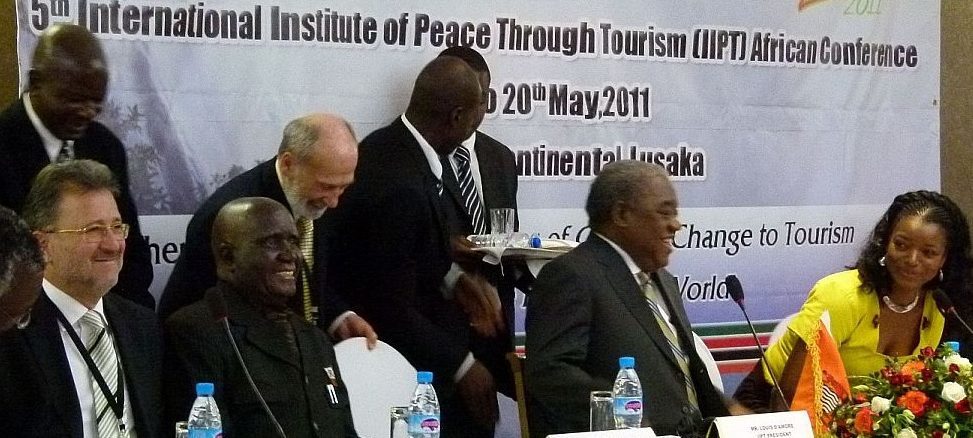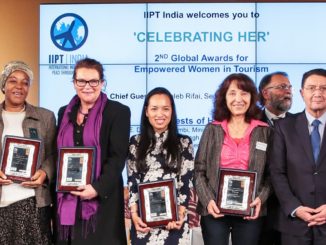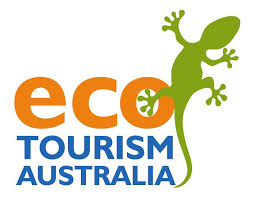
With more than 440 participants from 36 countries of Africa, Asia, Europe, North America and the Caribbean, assembled for the 5th IIPT African Conference: Meeting the Challenges of Climate Change to Tourism in Africa and the Developing World, at the Hotel Inter-Continental, Lusaka, Zambia, May 15 to 20, 2011, in support of the U.N. Millennium Development Goals.
Considering:
World population has increased from 1.6 billion in 1900, to 6.0 billion in 2000, and will reach 9 billion by 2050, with 90% of 21st century growth in developing countries.
That growth in population, global consumption and the global economy has stressed the earth’s ecological systems and depleted much of the world’s natural resources.
It now takes the Earth one year and six months to regenerate what our world population consumes in one year resulting in collapsing fisheries, depleting forests, species extinction, water shortages, and crop failures – all with disproportionate impacts on the poor regions of the world.
U.N. Secretary General Ban Ki-moon has stated that “Climate change is the pre-eminent geopolitical and economic issue of the 21st century. It rewrites the global equation for development, peace and prosperity.”
Acknowledging:
The year 2010 ranked as the warmest on record, together with 1998 and 2005; the 10 warmest years on record have all occurred since 1998; Arctic sea-ice cover in December 2010 was the lowest on record; and a growing number of extreme weather events have occurred in regions throughout the world in the past 2 years.
African and other developing countries are least responsible for climate change, yet are particularly vulnerable to the effects, including reduced agricultural production, threats to food security, both drought and flooding, sea level rise, coastal erosion, coral bleaching, deforestation, loss of wildlife, reduced fresh water availability, spread of malaria and other disease, and increased risk of conflict over scarce land and water resources.
Climate change and the combined stresses on ecological systems can hinder progress made on reducing poverty and the UN Millennium Development goals.
Noting that within this context:
World military expenditure are in excess of US $1.6 trillion, more than the GDP of any nation except 8 – approximately $225 for every man, woman, and child in the world;
When 1 of every 6 survives on $1 a day or less; another 2 of every 6 on $2 a day or less; 1 out of every 6 – go to bed hungry; 1 of every 4 – never get a clean glass of water to drink; 2 in 5 lack proper sanitation; and 35,000 children die each day from preventable diseases – many of them from water-born diseases.
Recognizing
Research conducted by the Institute for Economics and Peace and Economists for Peace and Security has estimated the monetary value of peace on the global economy over a four year period, 2006 to 2009 would have been US$18.5 trillion dollars, not including an additional US$9.8 trillion in expenditures that would have been diverted from violence-related activities to areas benefitting society – a total of US$28.3 trillion over a four year period.
Participants in the 5th IIPT African Conference conclude:
The global challenges facing humanity call for global solutions and cooperation at all levels – and by all sectors, public and private, and civil society as a whole – on an unprecedented scale.
Peace will be an essential prerequisite to achieve this level of cooperation, and peace will also generate the additional economic wealth to fund these solutions.
That travel and tourism – the world’s largest industry, affecting every sector of society, in virtually every nation – an industry that is founded on peace, and that contributes to peace and understanding – has a key leadership role to play in achieving these solutions.
That travel and tourism has a central role to play in creating jobs with dignity, foreign exchange earnings, the development of disadvantaged areas, poverty reduction, and the promotion of understanding peace, love, unity and progress among all peoples, communities and nations on the African continent, and throughout the world.
And therefore call on all sectors of the travel and tourism industry to:
1. Support the leadership role of UNWTO, UNEP and WMO in the specific actions called for in the Davos Declaration: Climate Change and Tourism – Responding to Global Challenges.
2. Give emphasis to energy conservation and aggressively make the transition to renewable and clean energy sources as a foundation for carbon/GHG neutral development strategies and a ‘Green Growth’ transformation.
3. Continue to implement socially and environmentally responsible tourism practices that benefit local destinations and enhances both cultural and natural heritage, giving particular emphasis to fair trade in tourism practices, tourism that contributes to poverty reduction, and tourism that contributes to the restoration of ecological systems.
4. Provide for quality tourism experiences that include meaningful interactions between visitors (guests) and the host community, and a greater understanding and appreciation of local cultures, customs, and traditions.
5. Implement environmentally responsible development and operational practices, particularly in vulnerable areas including coastlines, low lying areas, and mountain regions.
6. Develop and implement waste management plans that give emphasis to reducing, recycling, and re-use.
7. Incorporate quadruple bottom line reporting with climate change alongside environmental stewardship, social responsibility, and economic value.
8. Actively engage local communities in planning and decision-making, empower women and youth, and embrace the wisdom, knowledge, and values of indigenous peoples.
9. For the transport sector, and particularly the airline industry, continue efforts in improving engine efficiencies and ultimately develop engines that operate with clean and renewable energy sources.
10. Recognize the important role of media, educational, and religious institutions as agents of change.
Governments and International Development Agencies:
1. Provide incentives to tourism projects that utilize green designs/technologies, contribute to creating sustainable livelihoods, poverty reduction, and the U.N. Millennium Development Goals.
2. Only approve projects that adhere to globally recognized sustainable tourism certification standards, and that incorporate construction designed to withstand severe storms and other effects of climate change.
3. Not allow heavy water consuming projects where water is in limited supply.
4. Develop Disaster Management Plans that include phases for Risk Reduction, Readiness, Response, and Recovery.
5. Recognize that certain forms of tourism ARE an adaptation strategy.
6. Encourage more research and monitoring of emerging trends related to the inter-connectedness of tourism – environment – and climate change, and provide web-based tools for the sharing and integration of research findings such as has been done in Botswana: www.Botswanatourismresearch.org.
7. Design and implement broad public awareness campaigns focusing on the linkages of tourism – environment – climate change – sustainable development – and broader society. Provide corresponding educational programs beginning at the primary level – through high school – and into universities.
Travelers:
1. Appreciate that we are all custodians of our one common home – planet earth, and we all share a common responsibility in preserving its abundant beauty and resources for future generations.
2. Be selective in modes of travel and minimize – and offset – the carbon footprint of their entire trip.
3. Select accommodations, transport, tour operators, activities with eco-labels or that have been recognized for their green practices and strive to contribute to the social, cultural, economic, or environmental enhancement of their destination.
4. Recognize that every traveler is potentially an ‘Ambassador for Peace’ – and a messenger of transformative change towards a “Green Growth” global village.
5. With Gandhi and Tolstoy, come to discover that ‘life finds meaning in service to others’ – and
“By my spirit, words, and actions, encourage others to travel the world in peace.”
from IIPT Credo of the Peaceful Traveler
We support the UNWTO, UNEP and WMO Davos Declaration in calling for UN, international, financial and bilateral agencies to support the governments of developing, and in particular least developed countries, for which tourism represents a key economic sector, in their efforts to address and to adapt to the adverse effects of climate change and to formulate appropriate action plans;
Commend the International Institute for Peace through Tourism (IIPT) for its organization of this conference and for giving scope to the vision of peace through tourism;
And express appreciation to our host – the Government of the Republic of Zambia, Ministry of Tourism, Environment and Natural Resources; Conference Patron, His Excellency Rupiah B. Banda, President, Republic of Zambia; Conference Partners and Sponsors including the UN World Tourism Organization (UNWTO), United Nations Development Program (UNDP), Pacific Asia Travel Association (PATA); Regional Tourism Organization of Southern Africa (RETOSA), World Travel Market; Livingstone University of Tourism Excellence and Business Management (LIUTEBM), Zambia Ethno Tourism and Cultural Tourism Alliance (ZECUTA), Children and Youth Welfare Foundation, Sustainable Travel International (STI), Blue Yonder and others; Media Partners including eTurbo News, World Tourism Directory, India Tourism Catalog, Travel Video TV, and others; the many Conference Supporters; and the people of Zambia for their welcoming spirit and hospitality.
Adopted at Lusaka, Zambia, 20 May 2011
By the more than 440 participants to the 5th IIPT African Conference on Peace through Tourism from 36 countries of Africa, Asia, Europe, North America and the Caribbean including Ministers of Tourism, senior representatives of UN agencies, senior government officials, senior representatives from diverse sectors of the industry and NGO’s, educators, students, and leading experts in tourism and climate change.
Watch the poem for the IIPT, Peace Through Tourism conference in Zambia


